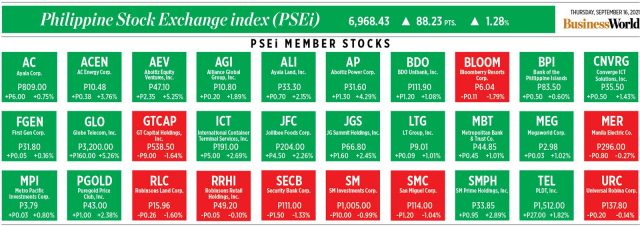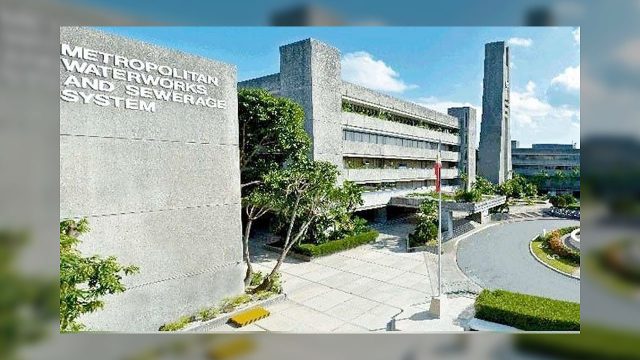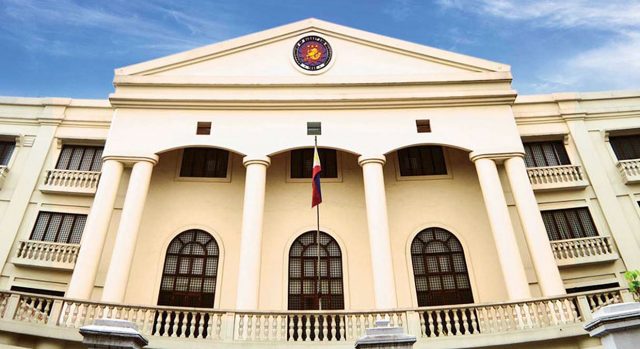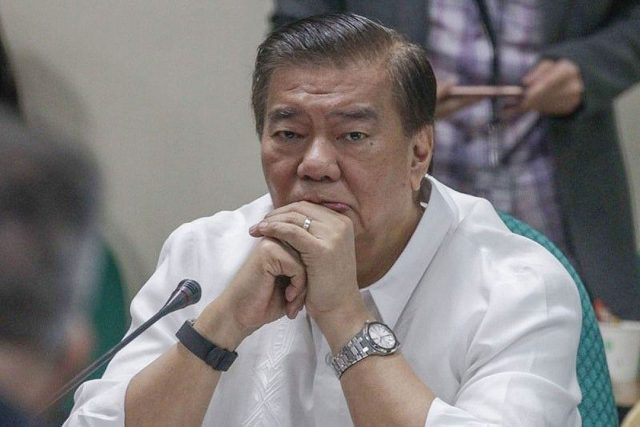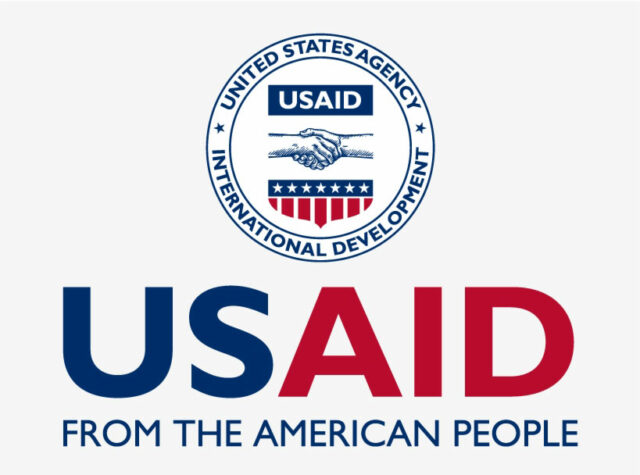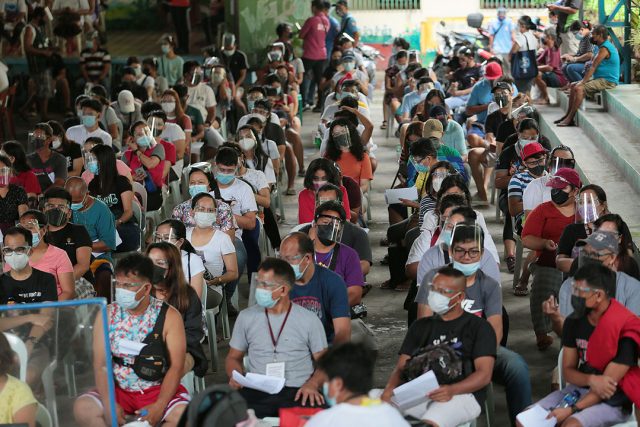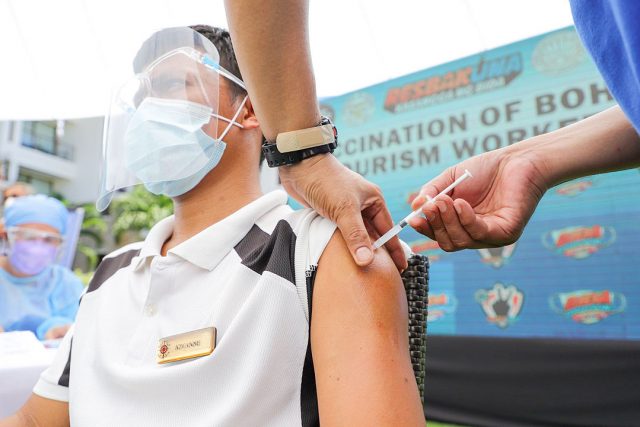MWSS rejects CoA finding that Kaliwa Dam ECC could be at risk
THE METROPOLITAN Waterworks and Sewerage System (MWSS) said Thursday that compliance with environmental requirements in connection with the Kaliwa Dam is ongoing with construction still yet to begin, even as the design phase for the P12.2 billion project exceeds 90% completion.
“Clearly, compliance with the ECC’s requirements is a continuous process that should be integrated into all phases and aspects…. with the Design-Build framework of the contract,” the MWSS said in a statement.
The water regulator was responding to a finding by the Commission on Audit (CoA) that the Environmental Compliance Certificate (ECC) for the project could be at risk despite the advanced stages of project preparation.
The MWSS said that the 92.67% completion in the Detailed Engineering and Design (DED) phase noted by CoA only refers to preparatory works, with no ground actually being broken.
“To date, overall accomplishment is 10.44% which comprises the DED accomplishment including other preconstruction items such as the design and manufacturing of the tunnel boring machine. No construction, equipment, or ground works have mobilized or begun,” the MWSS said.
Tunnel boring for the Kaliwa Dam project is expected to start in December.
The agency also said that the DENR requires for the pre-construction and DED phase a Certification Precondition on Free Prior and Informed Consent from the National Commission on Indigenous Peoples, permits of disposal sites of excavated materials, and the Special Use Agreement in protected areas.
In its 2020 audit report, the CoA said the MWSS proceeded with implementing the project without proper documentation, which could lead to the “cancellation of the Environmental Compliance Certificate (ECC)” issued by the Department of Environment and Natural Resources (DENR) on Oct. 11, 2019.
Following the release of the ECC, MWSS issued a Notice to Proceed to China Energy Engineering Corp., Ltd. (CEEC) to commence work on the project. The Kaliwa Dam project is a joint venture of the MWSS and CEEC, the design and building contractor.
The commission also noted that the MWSS has also yet to submit a memorandum of agreement with local government units for the project’s social development program, a copy of the approved reforestation program, and a copy of the creation of an environmental unit upon receipt of the ECC.
The agency also failed to submit authenticated copies of the Compliance Monitoring Report (CMR) and DENR correspondence to the state auditor.
“We recognize the importance of this project to the government with the objective of ensuring water security… However, the MWSS should also comply with all the conditions and restrictions of the DENR… in order to protect and mitigate the project’s adverse impacts on community health, welfare, and the environment,” CoA said.
The CoA recommended that the MWSS Engineering and Technical Group secure the necessary permits, to which the MWSS replied in its audit comment that the documents referred to have been duly filed.
The documents included a CMR for January to June 2020, draft of the integrated development plan, a reforestation and carbon sink program, a detailed waste management plan. It has also created an environment unit, as required.
However, the state auditors said the CMR documentation was incomplete. Among the deficiencies cited was that the documents submitted were photocopied.
The Kaliwa Dam, expected to be completed by 2025, will provide an estimated 600 million liters of water daily to Metro Manila, which currently sources most of its water from Angat Dam in Bulacan. It has been opposed by indigenous and environmental groups. — Russell Louis C. Ku
Budget usage improves to 91% in 8 months to August
CASH UTILIZATION by government agencies improved year on year in the eight months to August, the Department of Budget and Management (DBM) reported, with spending likely facilitated by easier quarantine conditions this year.
Utilization, as measured by a budget document known as the Notice of Cash Allocation (NCA), came in at 91% of the P2.676 trillion in NCAs issued in the eight months, leaving P229 billion unused.
The year-earlier usage rate was 83%, while utilization in the seven months to July 2021 was 89%.
The NCA is the disbursement authority from the DBM issued to agencies authorizing them to withdraw funds from the Treasury to cover their spending needs.
“The utilization rate improved compared to last year, when mobility curbs may have hampered overall operations. With lockdown measures eased somewhat with a particular focus on infrastructure spending, disbursement and allocation have improved,” ING Bank Senior Economist Nicholas Antonio T. Mapa said in an e-mail Thursday.
He said spending on both public construction projects as well as non-infrastructure programs have been picking up at a “modest pace.”
“The high utilization rate is a welcome development. We hope that the high utilization translates to actual spending with funds hopefully finding their way to the real economy,” he added.
Budget allocations have also risen with the government spending more in response to the pandemic and economic downturn, Asian Institute of Management Economist John Paolo R. Rivera said in an e-mail.
The government continues to enforce varying levels of lockdowns to curb the spread of coronavirus disease 2019 (COVID-19), after daily case counts hit record highs recently on the back of the highly infectious Delta variant of the coronavirus.
According to the DBM, line departments used 89% or P1.65 trillion of their NCAs in the eight months, leaving P207 billion unused.
The Commission on Human Rights and the Civil Service Commission recorded the highest budget usage rates at 99%, while the Department of Information and Communication Technology posted the lowest rate of 60%.
Budgetary support to government-owned companies as well as allotments to local government units were 97% utilized in the eight months, out of P818.88 billion NCAs issued.
Mr. Rivera said government spending is crucial for stimulating economic growth during the rebound from the pandemic.
“However, what is interesting to note is where did the expenses go? Were they spent on salaries, pandemic response, assistance? We cannot harness the accelerator effect of these spending if they are not spent/allocated to things that truly matter,” he added.
The DBM had released 92% of this year’s P4.5-trillion spending plan as of August, leaving P358 billion for the remainder of the year. — Beatrice M. Laforga
Farmers question DoF takeover of crop insurance firm
THE TRANSFER of the Philippine Crop Insurance Corp. (PCIC) to the Department of Finance (DoF) from the Department of Agriculture (DA) will make the company less responsive to farmers’ needs, the Federation of Free Farmers (FFF) said.
FFF National Manager Raul Q. Montemayor said the crop insurance program is a vital component of the DA’s food production program and is counted upon to compensate farmers suffering damage from natural calamities or animal disease.
“Without crop insurance, banks will find it too risky to lend to farmers, and farmers will find it very difficult to pay their loans, much less recover from calamities. It is therefore very important that the coverage and services of the program are synchronized with the plans and strategies of the DA,” Mr. Montemayor said in a statement Thursday.
On Sept. 14, President Rodrigo R. Duterte signed Executive Order (EO) No. 148, which transferred the PCIC to the DoF.
“In order for the PCIC to effectively perform its mandate of providing insurance protection to farmers in the most-cost efficient manner, there is a need to align its plans and programs with national development policies and the government’s overall fiscal plan,” according to the EO.
Mr. Montemayor said the changes to the PCIC Board suggest a shift in priorities to cost concerns and away from responding promptly to farmers’ needs.
The EO reorganizes the PCIC Board to make the Finance secretary the chairman, relegating the Agriculture secretary to the vice-chair post.
Members of the board include the PCIC president, Land Bank of the Philippines president, Government Service Insurance System president and general manager, a private insurance industry representative, and a farmer representative.
Previously, the PCIC Board had three farmer representatives and the executive director of the Agricultural Credit Policy Council.
“The three board seats previously allotted by Republic Act (RA) No. 8175 to farmer representatives were illegally reduced to only one seat,” Mr. Montemayor said.
Mr. Montemayor said farmers were not consulted adequately on the transfer.
He urged Congress to revisit RA No. 10149 or the Government-Owned and -Controlled Corporation (GOCC) Governance Act, which was cited as the basis for the PCIC transfer to DoF.
“We recognize that the bureaucracy may need to be reorganized and streamlined from time to time. However, this should be done with proper consultation with affected stakeholders and also the legislators who crafted the charter of the GOCC involved,” Mr. Montemayor said.
BusinessWorld asked the DoF to comment but it had not replied at deadline time. — Revin Mikhael D. Ochave
Drilon says PCOO budget should be diverted to pandemic response
MINORITY Senator Franklin M. Drilon said the proposed 2022 budget for the Presidential Communications Operations Office (PCOO) should be reworked to divert more funds to urgent matters like the pandemic response.
“Our priority for next year should be our pandemic response,” said Mr. Drilon, the chamber’s Minority Leader, at a budget hearing Thursday.
He noted that some programs can safely be pushed back to 2023 with no significant impact on government operations, adding: “We have to accept the fact that our resources are very tight.”
The Senate was considering denying funding for the PCOO’s Visayas Media Hub, which entails a capital outlay of P200 million and estimated operating expenses of P50 million; and the Government Communications Academy (GCA), which will require capital of P79 million.
Mr. Drilon said that it would be better to re-allocate the funds. “It is very obvious that we need funds because of the COVID response requirements. Every single peso of resources should prioritize COVID,” he added.
PCOO Secretary Jose Ruperto Martin M. Andanar said that in 2019, the budget allocated for the GCA had been deferred to give way to other priorities.
Mr. Drilon said he would personally look into which budgets and expenses can be trimmed. “We really need to help our frontliners, especially.” — Alyssa Nicole O. Tan
Incubator receives USAID backing
INCUBATOR StartUp Village will launch an 18-month small business support program funded through a grant from the United States Agency for International Development (USAID).
The company’s Project Match will link startups and micro-, small-, and medium-sized enterprises (MSMEs) to financing and mentorship through a digital platform.
The project was also designed to help MSMEs digitize by connecting them to startups that can provide technology.
“We connect MSMEs and startups by providing them with the additional resources needed for this to happen. We educate the MSMEs and startups,” StartUp Village President Carlo Calimon said at a virtual event Thursday. “In the process, they will need additional financing to grow their respective products.”
Project Match aims to increase revenue and reduce costs for MSMEs through digital tools, provide access to financial and digitization resources, and provide financial education.
The small businesses will be linked to chatbot, digital banking, and e-commerce services startups.
“Because of the pandemic, we saw lots of challenges with regards to financing. The challenge is really how to access these loans. Banks are there — they would want to give assistance,” USAID Deliver Project MSME Competitiveness Lead Leandro Gazmin said.
“But really the challenge is matching them and how the enterprises would be capable or upgrade their capabilities to be compliant with the requirements of the loans.”
The project is also backed by the Department of Trade and Industry, Department of Science and Technology, and the Department of Information and Communications Technology, along with QBO Philippines, IdeaSpace, and Impact Hub Manila. — Jenina P. Ibañez
PHL pushing to develop international standards for laminated bamboo
THE PHILIPPINES has been leading the effort to develop international quality standards for laminated bamboo used in indoor furniture, the Trade department said.
The Department of Trade and Industry’s Bureau of Philippine Standards (BPS) said that a Philippine representative heads an international working group that will come up with requirements for testing and handling the products under the International Organization for Standardization.
The standard could then be used as a reference for national standards on bamboo products and can be used to guide consumers, the BPS said in a statement Monday. Also known as engineered bamboo, laminated bamboo strips are used by furniture makers and designers.
BPS Director Neil P. Catajay said that he is hoping for a completed standard in two years.
“These will significantly contribute to the advancement of the country’s bamboo and furniture making industry. We look forward to the support of other countries for the promotion and improvement of the bamboo industry in the international community,” he said.
“The exchange of information and practices with technical experts (from other) countries provides additional knowledge to the members while providing input in the development of international standards to ensure the safety, quality, and reliability of furniture products from bamboo.”
The International Organization for Standardization working group on bamboo for furniture also has representatives from China, France, Indonesia, Malaysia, Ethiopia, Ghana, Colombia, Netherlands, and Nigeria. The group is headed by Rico Jariel Cabangon of the Department of Science and Technology.
The Philippine proposal to develop an international standard for laminated bamboo was approved in February. — Jenina P. Ibañez
Philippines rejects ICC probe, to bar examiners
THE PHILIPPINES on Thursday said it would not cooperate with the International Criminal Court’s (ICC) investigation of President Rodrigo R. Duterte’s war on drugs.
“Our position concerning the proceedings before the ICC remains,” Chief Presidential Legal Counsel Salvador S. Panelo said in a statement. “The foreign institution has no — as it never had — jurisdiction over the affairs of the Republic of the Philippines and its people.”
The ICC decision to investigate Mr. Duterte for alleged crimes against humanity “neither bothers nor troubles the President and his administration,” he added.
Mr. Panelo separately told reporters ICC investigators would be barred from entering the Philippines during Mr. Duterte’s term.
The tough-talking leader, who has less than a year before his six-year term ends, prefers to die rather than face the international court, his spokesman Herminio “Harry” L. Roque, Jr. said.
Cases should be filed before domestic courts, which are fully functioning, Mr. Roque told a televised news briefing.
The ICC’s pre-trial chamber has formally opened a probe of alleged human rights violations committed in Mr. Duterte’s bloody drug war.
The Hague-based tribunal said the government’s drug war “cannot be seen as a legitimate law enforcement operation, and the killings neither as legitimate nor as mere excesses in an otherwise legitimate operation.”
The ICC, which investigates and tries people charged with genocide, crimes against humanity, war crimes and aggression, will also probe vigilante-style killings in Davao City when Mr. Duterte was still its vice-mayor and mayor.
Mr. Roque said the Philippines would not cooperate with the ICC probe because it lost jurisdiction of the case after the country broke ties with the tribunal in 2019.
Tens of thousands of drug suspects have died in police anti-drug operations, many of them allegedly killed after resisting arrest, according to the United Nations.
Human Rights Watch lauded the court’s decision, saying it gives survivors and victims’ families “reason to hope” for justice.
The investigation “offers a much-needed check on President Rodrigo Duterte and his deadly war on drugs,” Carlos Conde, the group’s senior Philippines researcher, said in an e-mailed statement.
At least 122 children were killed in the government’s deadly drug war between July 2016 and Dec. 2019, according to the World Organization Against Torture.
The Philippine Commission on Human Rights said that it would consider cooperating with the ICC. “Should we receive a formal request from the ICC, we will take whatever they present to us in that formal request under consideration at the appropriate time,” Chairman Jose Luis Martin C. Gascon told a House of Representatives budget hearing on Thursday.
Detained Senator Leila M. de Lima said it was only a matter of time before the ICC orders the arrest of Mr. Duterte, his former police chief and now Senator Ronald M. de la Rosa and the so-called Davao Death Squad.
The senator, one of Mr. Duterte’s staunchest critics, is on trial for allegedly abetting illegal drug trade inside the country’s jails when she was still Justice secretary. She has denied any wrongdoing.
“Duterte reminds me of the dictator who refuses to acknowledge the existence of an international community of nations that chose to live within contemporary standards of human rights and civilized polity,” Ms. De Lima said.
“The ICC decision to specifically investigate him for crimes against humanity is the proverbial hangman’s noose closing around the neck of the sociopathic serial killer,” she added.
The government’s refusal to cooperate could hurt Philippine relations with the international community, human rights lawyer and former congressman Neri J. Colmenares said by telephone.
“It will seriously weaken the credibility of the Philippines in the international community,” he said, adding that the country could be considered a “rogue state.”
The ICC does not normally take on a case if a member state can do the probe on its own, human rights lawyer Jose Manuel I. Diokno said by telephone. “The fact that ICC has gone this far is an indication that it would be difficult for victims to take justice in our country.”
In 2018, Mr. Duterte said extrajudicial murders happened under his administration’s drug war. The Commission on Human Rights has said the state was violating human rights for failing to stop police abuse.
Judges Peter Kovacs, Reine Adelaide Sophie Alapini-Gansou and María del Socorro Flores Liera signed the ICC order to investigate Mr. Duterte. — Kyle Aristophere T. Atienza and Bianca Angelica D. Añago
DoH says 21,261 more people got COVID-19; 277 more patients die
THE DEPARTMENT of Health (DoH) reported 21,261 coronavirus infections on Thursday, bringing the total to more than 2.3 million.
The death toll rose to 36,018 after 277 patients died, while recoveries increased by 13,644 to more than two million, it said in a bulletin.
There were 177,946 active cases, 86.1% of which were mild, 9.2% did not show symptoms, 1.4% were severe, 2.65% were moderate and 0.6% were critical.
Eighty duplicates had been removed from the tally, 65 of which were reclassified as recoveries and one as a death, while 174 recoveries were reclassified as deaths. Two laboratories failed to submit data on Sept. 14.
The agency said 111 of 121 provinces and cities in the country were at high risk for the coronavirus, Health Secretary Francisco T. Duque III said at a taped Cabinet meeting aired on Thursday.
He said the country posted an average of 83 deaths daily in the first two weeks of September.
Meanwhile, President Rodrigo R. Duterte said DoH had requested P1.23 billion more funds from the Budget department to finance the special risk allowance of health workers. About P15.1 billion has been released for the allowance and other benefits, he added.
At the same meeting, Mr. Duterte said his government would seek more funds to hire more health workers during the pandemic.
“We will see what we can do,” Mr. Duterte said. “We will try to look for the money to have more recruits joining this fight against COVID.”
Mr. Duterte made the remark amid reports that the country’s hospitals continue to grapple with workforce shortage.
Earlier this week, Philippine General Hospital (PGH) spokesman Jonas D. del Rosario said manpower at the country’s main COVID-19 referral hospital was facing a workforce crisis.
Mr. Del Rosario said health workers at the state-run hospital were getting sick, while volunteer doctors have opted not to renew their contracts. PGH was planning to hire private practitioners.
Presidential spokesman Herminio L. Roque, Jr. said 77% of intensive care unit (ICU) beds in the country had been used as of Sept. 15, while 69% of isolation beds and 73% of ward beds were occupied.
He said 79% of ICU beds in Metro Manila had been occupied, while 66% of isolation beds and 73% of wards were used.
More than 40 million coronavirus vaccines had been given out as of Sept. 15, Mr. Roque told a televised news briefing.
He added that 17.7million people or 22.91% of the country’s adult population had been fully vaccinated against the coronavirus.
The government on Sept. 16 started enforcing granular lockdowns with five alert levels in the National Capital Region (NCR). Metro Manila was placed under Alert Level 4, the second highest level, until Sept. 30.
The new lockdown strategy was enforced “at a time when we face the worst surge of COVID- 19 (coronavirus disease 2019) cases in the Philippines,” the Healthcare Professionals Alliance Against COVID-19 said in a statement.
“We now register more cases than at any other time since the pandemic started,” it said. “Health facilities are overwhelmed, resulting in patients dying unattended at home, in ambulances or in corridors.”
The group said the new lockdown scheme “does not reflect the true situation on the ground.” “We therefore strongly urge the government to acknowledge and address the inadequacies of our data reporting system that forms the basis for the alert levels.” — Kyle Aristophere T. Atienza
Court asked to compel gov’t to allow ivermectin use
THREE lawmakers and three doctors have asked the Supreme Court to order the government to allow the use of the anti-parasitic drug ivermectin to treat the coronavirus.
In a petition, Party-list Reps. Rodante D. Marcoleta and Michael T. Defensor and Senator Francis N. Tolentino asked the tribunal to compel the Health department and Food and Drug Administration (FDA) to issue a certification of product registration for the drug.
Companies that manufacture, import and distribute ivermectin should also be issued a license to operate, they said, arguing that the disinformation campaign against ivermectin stemmed from “corporate greed.”
“The story of ivermectin shows that we, as the public, have misplaced our trust in the authorities and have underestimated the extent to which money and power corrupt,” they added.
Ivermectin has not been proven to be effective against the coronavirus, according to the US FDA. Clinical trials assessing ivermectin tablets for the prevention or treatment of coronavirus disease 2019 (COVID-19) in people are ongoing.
The World Health Organization advises that ivermectin be used only to treat COVID-19 within clinical trials. — BADA
Senate seeks details of over 1,400 contractual workers under Palace communications office
THE SENATE has asked the Palace communications unit to submit details on the functions of over 1,400 contractual workers with a proposed budget of P76 million for 2022.
The Presidential Communications Operations Office (PCOO) said at the budget hearing Thursday that it currently has 1,479 contractual hires.
Twelve senators had previously filed a resolution seeking an investigation into allegations that the PCOO uses government funds to run so-called “troll farms” with personnel tagged as “social media specialists.”
“We don’t have trolls. There are no trolls there,” said Undersecretary Kristian R. Ablan at the hearing.
Senators asked PCOO to submit information on the contractuals, including names, position, place of assignment, date of start and end of engagement period, functions, responsibilities, terms of reference, job description, address and daily time record.
“You are asking for the appropriation of public funds. We have the right to know how you use these public funds,” said Minority Leader Franklin M. Drilon at the hearing.
“Part of our right to know is to make sure that these are not fictitious names, that the names are performing their jobs. Even if they are trolls we will accept them, as long as they are legitimate and existing,” he added.
Senator María Imelda Josefa “Imee” R. Marcos noted that the PCOO had no policy guidelines for hiring the workers. “Your contracts of work are very random. They don’t appear to have any semblance of uniformity or even the requisite Civil Service Commission Regional approval.”
“We know that you’ll never admit that you have a budget for trolls,” said Mr. Drilon, adding that senators will just examine the information themselves.
The Commission on Audit, in its 2020 report, questioned PCOO’s basis for hiring 375 contractual workers without written policy guidelines on availing their services. These workers comprised 71.7% of the total PCOO manpower.
Meanwhile, Mr. Drilon called the PCOO’s planned Visayas Media Hub, with a P200-million budget, a propaganda center, similar to the recently completed media hub in Mindanao. — Alyssa Nicole O. Tan
Tourism chief says sector ready to sustain gradual reopening as 50% of workers nationwide fully vaccinated
THE TOURISM industry is on a gradual reopening as the Philippines eases lockdown policies and stakeholders are ready to sustain recovery with the vaccination of frontline workers, Tourism Secretary Bernadette Romulo-Puyat said.
“Vaccinating our tourism workers is the only way we can continue to sustain the recovery of domestic tourism, especially with the presence of a new virus variant,” Ms. Puyat said in a statement on Thursday.
She reported that as of Sept. 10 data from the department, 51.4% of the target 245,338 tourism workers nationwide have been fully inoculated against coronavirus disease 2019 (COVID-19).
The capital region Metro Manila registered the highest coverage at 94%, followed by the Davao Region with 88% and the Cordillera Administrative Region with 80%.
“As we work to secure more vaccine doses… I am also encouraging our workers to submit themselves for vaccination especially with the presence of the Delta variant,” she said.
In Metro Manila, where the new granular lockdown system is being piloted, several tourism destinations reopened on Thursday.
These include Fort Santiago, Baluarte de San Diego, and Plaza San Luis, all within Intramuros, and Rizal Park. — MSJ

